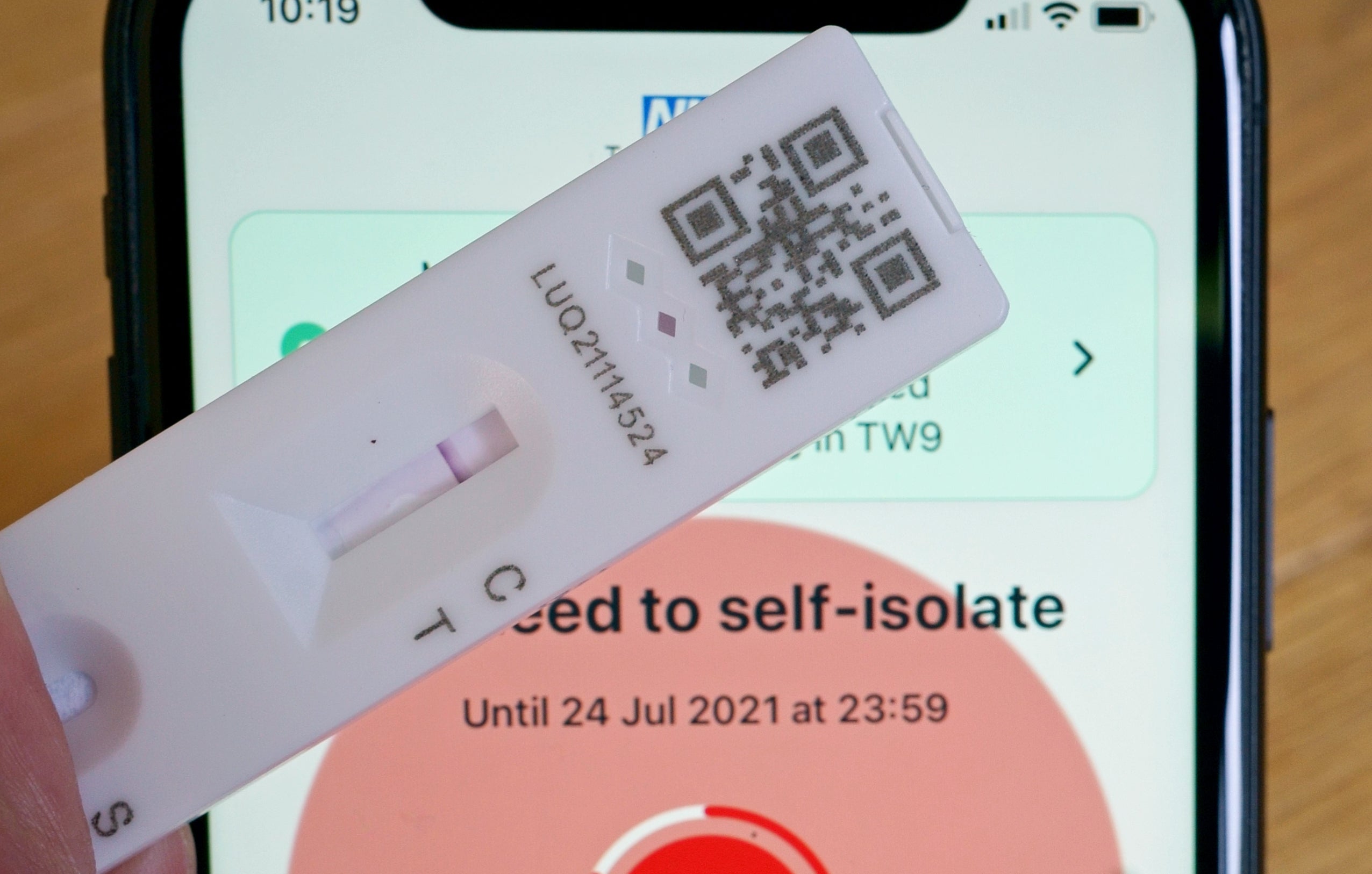Wales to reduce Covid isolation period to seven days in line with England
First Minister Mark Drakeford warned that the pandemic situation in the country remained ‘volatile’.

Your support helps us to tell the story
From reproductive rights to climate change to Big Tech, The Independent is on the ground when the story is developing. Whether it's investigating the financials of Elon Musk's pro-Trump PAC or producing our latest documentary, 'The A Word', which shines a light on the American women fighting for reproductive rights, we know how important it is to parse out the facts from the messaging.
At such a critical moment in US history, we need reporters on the ground. Your donation allows us to keep sending journalists to speak to both sides of the story.
The Independent is trusted by Americans across the entire political spectrum. And unlike many other quality news outlets, we choose not to lock Americans out of our reporting and analysis with paywalls. We believe quality journalism should be available to everyone, paid for by those who can afford it.
Your support makes all the difference.Wales is to reduce its mandatory isolation period for people who test positive with Covid-19 from 10 days to seven in line with England the Welsh Government has said.
People will be able to cut short the amount of time they need to isolate if they have two negative lateral flow tests taken on days six and seven.
Initially the new rule was to be introduced on January 5, but it will now come into force several days earlier on December 31.
The change, which was announced on Thursday as part of the Welsh Government’s weekly review of coronavirus restrictions, is to alleviate the impact of self-isolation on critical jobs, it said.
Health minister Eluned Morgan has also agreed to loan a further four million lateral flow tests to the English NHS, bringing the total given to 10 million, as concerns over shortages remain.
Ms Morgan said Wales had a significant stock of lateral flow tests, sufficient to meet the country’s needs over the weeks ahead.
The Government said the pandemic situation remained “volatile” after case rates soared over the Christmas period, likely to have been caused by the Omicron variant.
Wales moved to Alert Level 2 on Boxing Day, mainly restricting the number of people who can meet in public events and settings, including reintroducing the rule of six in hospitality venues.
Record numbers of infections have been identified and the overall seven-day case rate has risen to more than 1,000 cases per 100,000 people across Wales.
Cases are highest among 20 to 29-year-olds and 30 to 39-year-olds, and cases are starting to increase among older age groups.
Hospitalisations remain lower than in previous waves, but these too are starting to increase. Overall Covid-19 bed occupancy has grown by a third over the Christmas period due to a combination of both Omicron and Delta cases.
The number of confirmed Covid-19 patients in hospital had increased to 446 on Wednesday, 49% higher than the same day last week.
But the number of Covid-19 patients needing critical care had not risen.
Almost 1.6 million people have received the booster vaccine in the country.
Given the seriousness of the threat the virus poses, it remains vitally important that each one of us continues to take all those simple precautions which will help to slow down the spread of the virus and the risks it poses to all of us
First Minister Mark Drakeford said: “Today, a review has taken place of the public health situation over the Christmas period.
“It has deteriorated in the last week as the Omicron wave has arrived. We have seen a marked rise in cases of coronavirus – the majority are likely to be caused by the Omicron variant.
“This is similar to the position in the rest of the UK.
“Given the seriousness of the threat the virus poses, it remains vitally important that each one of us continues to take all those simple precautions which will help to slow down the spread of the virus and the risks it poses to all of us.”
The Welsh Conservatives said they welcomed the changes to the self-isolation period but said they should have been brought in last week when the UK Government announced it would be taking the action.
The party called again for the Labour Government to publish the evidence it used as a basis to increase restrictions on public gatherings.
In a statement, they said: “It is not good enough that they want to impose restrictions, which do not make sense, without showing us this crucial evidence to justify them.”